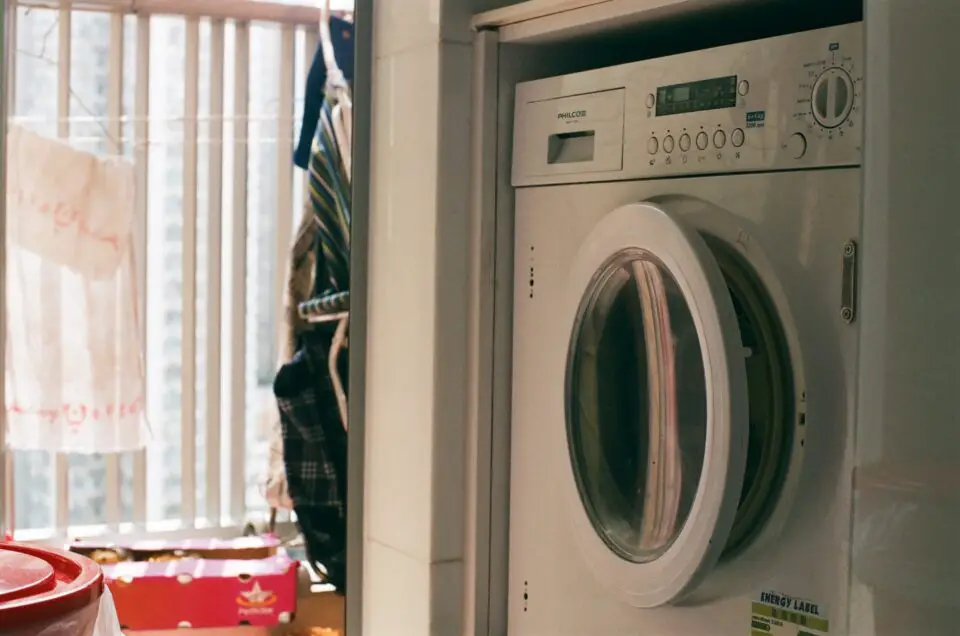Amana washing machines are among the most popular brands on the market today.
And for good reason: they are well-made, high-quality machines.
That being said, any appliance will eventually fail.
And the most inconvenient thing ever is a malfunctioning washing machine that leaks all over the floor.
In this article, we’ll address the most common washing machine leak issues.
In summary, here are the common reasons why Amana washing machines leak
- Detergent
- Defective Door Seal
- Hose clamp lose
- Damaged or worn-out external hoses
- Defective Water Pump
- Faulty Inlet Valve
- Faulty Detergent Draw
- Broken or Faulty Tub Seal
- Is the Filter or Catch Basket Clogged?
- Defective Coupler
We are confident that we will be able to identify your Amana washing machine leaking issues, possibly restoring your faith that it will not leak everywhere again.
7 Reasons Why Amana Washer Is Leaking (with fixes)
The most common reasons for an Amana washing machine to leak from the bottom are using the wrong kind and quantity of detergent and damaged leaking hoses.
Based on our research and experience, below are the most common reasons why your Amana washing machine is leaking water underneath and all over the floor
Before we dive in to figure out where the washer is leaking, take a look at where the water is pooling and try to figure out where it’s coming from.
If the washing machine is not level, the water will run, and it will be more difficult to pinpoint the source of the leak.
Check the Detergent
Often Amana washing machines leak due to incorrect amount and type of detergent being used, this oversudsing does appear as a leak.
Because different detergents are formulated with different concentrations, the appropriate amount may vary depending on the load size.
To avoid oversizing be sure to use only use HE detergent.
HE laundry detergents are concentrated laundry detergents that are low-sudsing.
Never use more than the amount recommended by the detergent manufacturer and only use the required amount of the size of the load.
You should be able to tell if you have the right amount of suds during a wash cycle.
If there are a heavy amount of suds this indicates the amount of detergent should be reduced.
The next step in determining the leak problem is to move to the following step.
Defective Door Seal
The most common cause of leaks is a defective door seal, which is easily repaired and identifiable.
Water frequently begins to leak from the bottom of the washing machine because something prevents the front-loading door from closing completely.
This could be due to dirt, excessive detergent, or other factors.
Check the door seal (also known as the gasket) for any wear or tears.
It will need to be replaced if there are tears.
If it is not damaged, gently clean it with warm water to remove any detergent, grime, or dirt.
Hose Clamp Loose or Missing?
Your washing machine’s drain hose should be connected to the drainage pipe that extends from your washer.
A clamp for the hose connection should be visible where they meet.
Your washing machine’s drain hose should be connected to the drainage pipe that extends from the washer.
This clamp may be hidden on the inside of some models, but it is usually visible.
If the connection feels or appears loose, or if there is no clamp or sealed connection at all, water may be leaking out the bottom of the washer.
In most cases, tightening the water hose by hand is sufficient.
However, there may be times when a replacement part or a professional serviceman is required to complete the task.
Connect with an Appliance Repair Technician
Click here to use the chatbox to speak with one of our skilled Technicians.
No in-home service calls. No appointments.
Damaged or Worn-out External Hoses
Washer leaks are typically caused by leaking, cracked, and worn-out hoses.
While you have the washer pulled out from the wall, carefully inspected the hoses, looking for cracks or areas of damage.
If the hoses are damaged, they will need to be replaced.
If the hoses are in good condition, the problem is most likely with the pump or the hose that runs from the water level selector switch to the side of the drum.
Either one is a simple fix; simply take one off and replace it.
Defective Water Pump
A faulty water pump or hoses linked to the pump are frequently to blame for leaks under the washer.
If the pump is malfunctioning, you will typically hear a lot of rumbling or shaking coming from the appliance throughout a wash cycle.
A washer’s water pump is often found near the bottom of the appliance.
The two substantial hoses that are attached to the water pump serve as a visual cue.
If any of these connections seem slack or congested, you can visually confirm this.
Defective Internal Hoses
A water leak that appears to be coming from beneath the washing machine, usually a large amount of water, is frequently caused by one of the many hoses inside the washer, most commonly the tub-to-pump hose.
The dispenser hose and the internal drain hose are two other hoses to inspect.
Foreign objects, such as buttons or coins, that have passed through the washer’s internal filters can cause damage to either of these internal hoses.
So be sure to check the hoses are not damaged or cracked, and that they are securely attached.
Any damaged hoses will need to be replaced.
Need help, best to contact a qualified repair technician.
Connect with an Appliance Repair Technician
Click here to use the chatbox to speak with one of our skilled Technicians.
No in-home service calls. No appointments.
Faulty Inlet Valve
The water inlet valve, which is usually located where the hot and cold inlet hoses enter the washer, controls the hot and cold water that enters the tub
A leak from the water inlet valve is usually caused by body cracks or a faulty seal.
The water inlet valve can be removed and replaced by removing the access panel and then removing the clamps that secure it with pliers.
Faulty Detergent Draw
Laundry detergent can also be a source of the leak.
If your drawer is leaking, rust can build up around the edges.
Examine it for any damage and give it a thorough clean.
Follow the manufacturer’s instructions on how to use it properly.
This includes the type and amount of detergent that should be used.
Broken or Faulty Tub Seal
If the water leak is beneath the washer, replacing a component known as the tub seal will usually solve the problem.
This is especially important if your washing machine starts leaking during the rinse cycle.
A tub seal is installed on the top of the transmission of the washing machine.
To access the tub seal, remove the spin basket and possibly flip the washer over.
Unfortunately, this can imply a significant amount of disassembly work, and it may be best to contact a technician.
Is the Filter or Catch Basket Clogged?
A catch basket in a washing machine is similar to a lint trap in a dryer.
It can become clogged over time, resulting in fibers in your washed laundry.
However, it can also cause the washer to leak from the bottom!
clogged basket or filter in the washing machine
The catch basket can be found along the top edge of the washing machine’s drum, the top of the center column (called the agitator) of the drum, or at the end of the drain hose, where there may be a removable screen you can clean.
These catch baskets may not be available in newer washers.
Defective Coupler
If your washing machine is leaking from the bottom of your clothes are still wet after a cycle, a broken coupler could be the source of the problem.
The coupler serves as a rubber or plastic seal between the washing machine’s motor and drum.
To protect the actual machinery in the event of a malfunction, it is actually designed to break.
And the good news is replacing it is not too expensive!
What Should I do if Amana Washer keeps leaking
Because you have a leak, it does not mean that your washer is broken and cannot be repaired.
Following the steps outlined above should allow you to identify and resolve the problem.
To find out the warranty of your fridge, it’s best to locate the paperwork that was handed over to you when you purchased the fridge.
Amana appliances typically come with a 12-month limited warranty. Check the back of your owner’s manual for the specifics of your appliance’s warranty.
For more information on warranty and support check out Is My Appliance in Warranty? – Product Help | Amana
However, if you have been unable to resolve the leak it’s time to call in a qualified technician to take a look
Connect with an Appliance Repair Technician
Click here to use the chatbox to speak with one of our skilled Technicians.
No in-home service calls. No appointments.
Should I Repair or Replacement my Washer?
If the repair is less than half the price of a new appliance and your machine still has several years of expected life left, a quick fix may be a more cost-effective option than replacing the entire washer.
A valid warranty can also justify any repair.
If not, it’s time to change the washer.
If the defective part costs more than half the price of a new washer.
Conclusion
This brings us to the end of the article, and we hope your washer is no longer leaking.
Remember that machines fail, and no matter how frustrating it is to discover that your beloved washer is leaking, it is always best to maintain your cool.
If your leaking problem has not been resolved, it is best to contact a technician.

